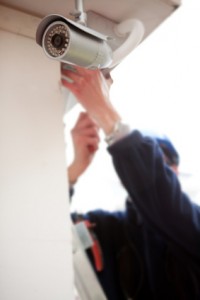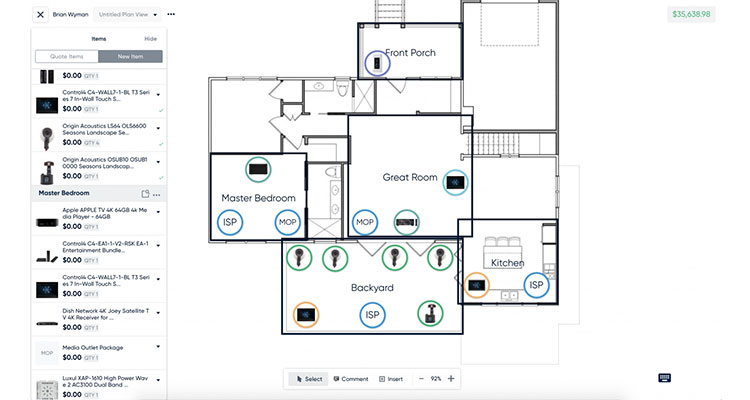Security System Pros And Cons For AV Integrators
 It sometimes seems as if there are two kinds of AV integrators: ones who resign themselves to offering their clients security systems and monitoring, and ones who loathe security and want nothing to do with it.
It sometimes seems as if there are two kinds of AV integrators: ones who resign themselves to offering their clients security systems and monitoring, and ones who loathe security and want nothing to do with it.
That’s a totally unfair assessment, but as I said, sometimes it seems that way. Excepting for the security integrators who do security systems all day, every day, most of the AV guys I’ve ever known would rather subcontract it out, and specify their automation requirements to the sub, but otherwise keep their hands off the security.
How do you, the AV integrator, decide whether to offer security in your portfolio of products and services? Like any business decision you have to weigh the pros and cons.
Pro: Recurring Revenue
How does that sound? I like money, and I’m guessing that you like money too. The cardinal business reason for doing security installs is receiving a residual check every month from the monitoring company that your firm deals with.
Now, from an integrator’s perspective, the flipside of that is the way that the big national alarm companies practically give away the hardware and the installation and seek to profit on the residuals of the monitoring contract. I still remember an instructor at CEDIA Expo ranted to us for more than fifteen minutes about how recurring revenue was terrible, and how it had ruined the business.
What you have to overcome is the perception, thanks to the big alarm company business model, that there’s no inherent value in the security install. I’ve actually had clients laugh at me when the quote for the security subsystem part of the project was a couple of grand, as opposed to “FREE.”
Anyway, back to recurring revenue; shop around for an alarm company that you can work with. As an AV company, you won’t be able to retire on your residuals, but it will be a welcome addition to your P&L every month.
Staying In Control
The most compelling reason to take on security jobs is to maintain control over every device in the house. You always need to check with your automation vendor for a list of security panels that they know are compatible with their controllers. Just because a panel has an RS232 or RS485 port doesn’t mean that it’s going to easily integrate for two-way communication with your controller: some brands use quirky control language. A non-approved panel will take hours and hours of programming code to allow the controller to poll the panel for its status. By contrast, your automation vendor will already have modules written for approved panels.
Sometimes the client already has a relationship with a security contractor, such as for his office, and he wants to have them handle his residence as well. In those situations, you need to partner with the security company, and politely ask them to use a panel from your automation vendors’ approved list.
Con: Tiny Little Projects
You don’t want to be pigeonholed as a security contractor when your real expertise (and profit center!) is AV. It’s one thing to install a security system as part of a whole-home A/V project, and you might get away with doing a security job or two as a “favor” for a long-time client or family friend, but do too many of them, and you’ll either lose tons of money, or you’ll wake up one day and find that your company has transformed into a commercial/industrial security firm.
There’s not only a bottom line, but also a top line minimum cost to each project you do that will make you profitable. If it’s $20,000, then you literally can’t afford to be in the business of doing $1,500 residential security installs, end of story.
It’s A Tough Racket
Like I said earlier, national alarm companies low-ball their installations at break-even or even lower, in order to secure long-term monitoring contracts, which is where their profit lies. This has had the effect of making life really difficult for small installation companies, unless they partner with, or sell out to, the monitoring company.
There’s two reasonable ways to deal with this. The first is to not offer security at all. The other is to be blunt and straightforward ahead of time that due to the nature of the security business, it costs you “X” to do security installs, whereas a big alarm company will practically give away the install to get the monitoring contract. If you’re honest about the realities, your client can choose to give you the business because he has confidence in your value as an integrator, or he can opt to save his pennies, and get the alarm company to tackle that part of the job, and you can work with them as I said earlier.
Ultimately, you’re going to be the best judge of whether doing security installs is right for your company. Some owners love it, and others hate it. Figure out what’s going to work for you.
Lee Distad is a rAVe columnist and freelance writer covering topics from CE to global business and finance in both print and online. Reach him at lee@ravepubs.com





